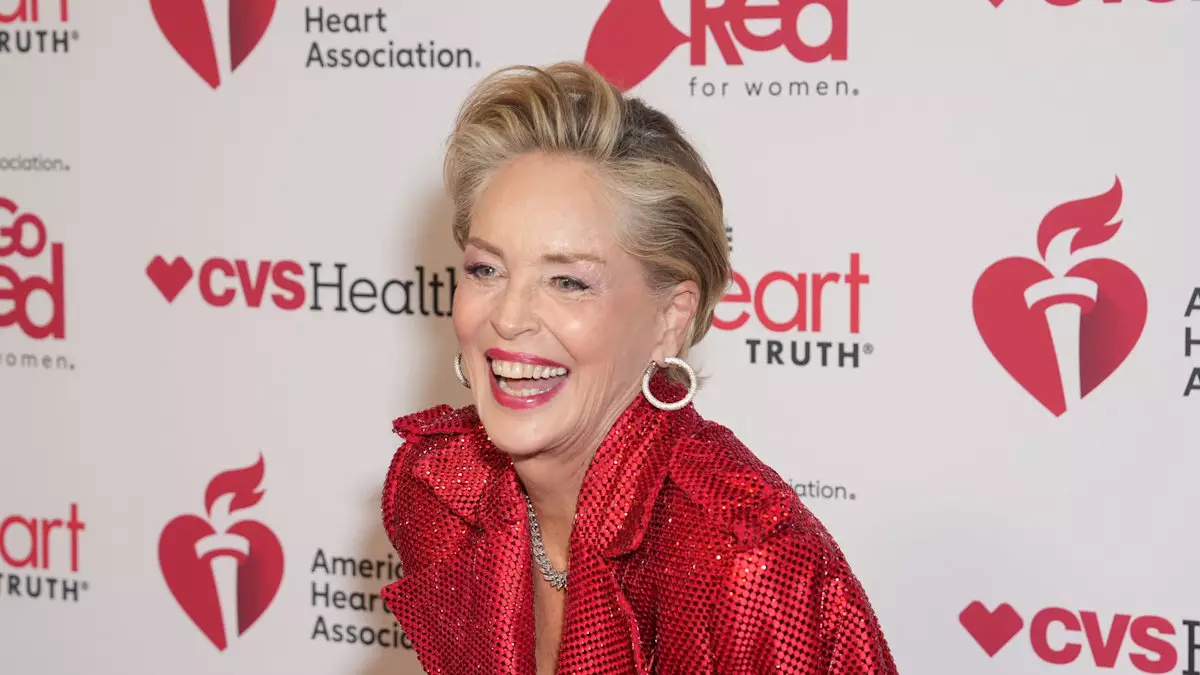Sharon Stone’s journey has been one marked by trials, triumphs, and a profound transformation in perspective, particularly regarding women’s health. Having faced one of life’s most daunting challenges—a stroke in 2001—Stone emerged not just as a survivor, but as a fervent advocate for the critical need to address women’s health issues. Her personal narrative is interwoven with a broader message that resonates with countless others who may find themselves in precarious health situations.
Attending high-profile events like the American Heart Association’s Go Red for Women Red Dress Collection Concert highlights Stone’s commitment to raising awareness about cardiovascular health, particularly among women. Her presence at such events emphasizes the importance of advocacy and education in the fields of women’s health—areas often overlooked in favor of male-centric studies. When Stone speaks on the red carpet, she does so from a place of gratitude and experience, reflecting on her experience as a stroke survivor. At 66, clad in a dazzling red pantsuit and scintillating jewelry, she embodies the very message she promotes: resilience.
Stone’s brush with death has dramatically shaped her understanding of health care. She emphasizes the alarming fact that for many years, gynecological health was largely neglected. “We tested hormones on men,” she points out, revealing a significant gap in research that has real-world implications for women’s health. Her powerful statement not only calls for necessary investment in women’s healthcare but urges society to recognize that health disparities can profoundly affect quality of life.
The aftermath of her stroke was not merely a physical challenge but also a harsh adjustment to the evolving landscape of Hollywood. Stone’s experience reflects the difficulties many people face when returning to professional life following a health crisis. “In seven years, you’re no longer the flavor of the time,” she notes, capturing the essence of an industry that thrives on trends and public appeal. By candidly acknowledging the pain of feeling forgotten, she offers a relatable perspective to others who have experienced similar setbacks.
Moreover, her candidness about living with a disability post-stroke serves as a beacon of hope and resilience. It embodies the complex emotional and professional landscape that survivors must navigate. Stone explains that it isn’t just about physical recovery; the emotional toll of feeling left behind weighs heavily. “I was sort of hurt that the world moved on without me,” she reflects, a sentiment that resonates heavily in an age where public figures often seem immortal and perpetually in the spotlight.
Sharon Stone’s transformation extends far beyond her physical health. The Buddhist monk’s assertion that she had been “reincarnated into my same body” strikingly encapsulates her experience of rediscovering life after a near-death episode. Her journey through such a profound health crisis underscored the importance of not only understanding the science behind health but also the psychological and spiritual dimensions that accompany recovery.
Stone’s description of enduring a catastrophic stroke highlights the tangible consequences of health issues that go unnoticed until they strike. The reconfiguration of her brain and subsequent alterations in her sensory perceptions serve as a stark reminder of how interconnected our physical and mental states are. “I couldn’t read for a couple of years,” she recalls, pointing to the isolation that can accompany cognitive changes, a struggle many endure but feel compelled to bear in silence.
Sharon Stone’s story is one of empowerment and resilience, drawing attention to the urgent need for a shift in how we approach women’s health. Her advocacy is not simply a reflection of her personal journey; it serves as a rallying cry for increased awareness and investment in healthcare research for women. As she continues to navigate life as a public figure and advocate, she provides a powerful voice that calls for change. It is in this blend of survival and activism that she inspires not just women but all individuals to acknowledge the complexities of health and to strive for a more equitable future in healthcare.

